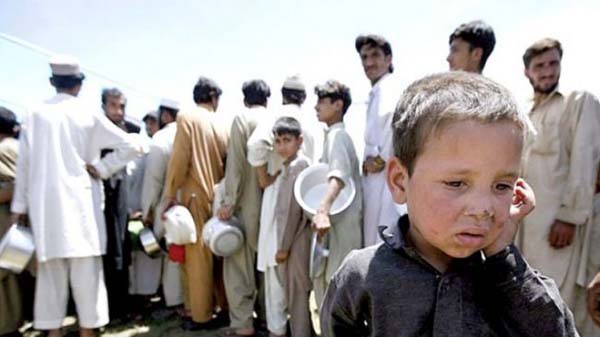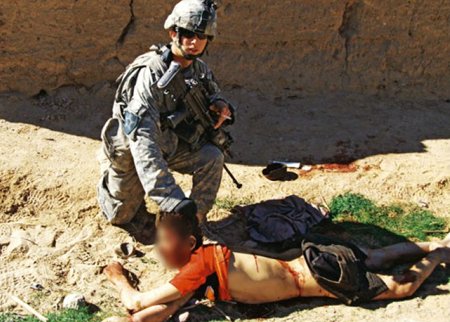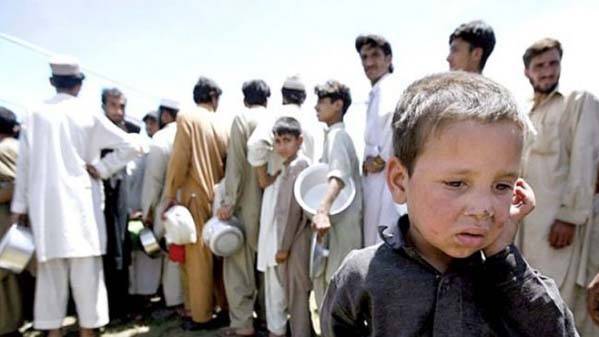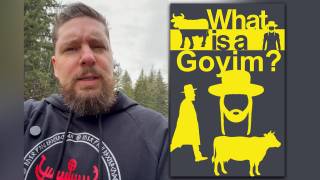So, Really, Why Do They Hate Us?
Source: counterpunch.org

Recent attacks on American embassies and consulates in numerous Muslim countries are claimed to be irrational and undue reactions to a film portraying the Muslim prophet Mohammed in a degraded manner. The film is intentionally sacrilegious and incendiary toward Islamic beliefs and seems intended to add fuel to the rage of a Muslim world already incensed at the U.S. for its wars in Iraq and Afghanistan, for destructive American drone attacks in Yemen and Somalia and multiple other nations, and one-sided support for Israel accompanied by platitudes for Palestinians. Thus, the roots of widespread anti-Americanism are much deeper than can be explained merely by recent events. Instead, Muslim fury can be traced to the ever increasing intervention by Washington in Muslim countries since the end of World War II. Prior to that, the U.S. was considered a non-interventionist, even anti-imperialist, friend in much of the region. Yet, even before the war ended President Roosevelt made a secret deal with the Saudi king to provide American protection (and ultimately arms as well, used primarily to suppress his own population) to the Saudis in return for unobstructed American corporate access to the recently discovered Saudi oilfields.
Few today remember American policies during the Iranian crisis of 1946, when the U.S. obliquely threatened to force Soviet Troops out of Iran. American, British and Soviet troops occupied Iran in 1941 because it had tilted toward the Nazis under the father of the later American client, Shah Reza Pahlavi. The Soviets occupied the oil fields of northern Iran with Washington’s approval during the war to prevent them from falling into Nazi hands. The Soviets were supposed to withdraw in March of that year but refused until a deal could be arranged whereby the USSR could purchase Iranian oil in order to begin rebuilding its war-ravaged society. Initially the Truman Administration encouraged the Iranian government to accept the deal. Then when the Red Army did withdraw also encouraged the Iranians to renege on the arrangement. It is worth noting that the Red Army did not then re-occupy the territory, thereby putting the lie to the claim made immediately after WWII that the Soviets were bent on world domination. There was nothing, not even employing atomic weapons, that the U.S. could have done to stop the Red Army had it chosen to reoccupy Iran’s oilfields since that would have destroyed the very resources that were being contested. The Soviets were only one of the principal obstacles to American post-war plans- though they were trumpeted as the prime mover. Equally important was nationalism, especially the sort of national independence craved by countries possessing vital resources that the U.S. coveted. Few also realize that until WWII the U.S. was the prime exporter of petroleum. By war’s end the U.S. had used so much of its domestic oil, and its hydrocarbon-based economy had grown so exponentially, that from that point on the U.S. was impelled to begin importing oil.
Many do remember the overthrow of the prime minister of Iran, Mohammed Mossadeqh in 1953. Exceeding its legal mandate to gather intelligence, the newly minted Central Intelligence Agency, initiated its first successful overthrow of a constitutional and elected government because that government decided that Iranian oil belonged to the Iranians and not to the British oil company that would eventually become British Petroleum. The American scheme was calculated to ensure that American companies would thereafter dominate Iranian oil production and get rid of most British competition in Iran as well. The Shah and his brutal government was then installed to act as Washington’s gendarme in the region. To ensure his rule the U.S. military and CIA then trained his dreaded secret police in the fine arts of torture and terror.
Meanwhile the CIA was active in similar efforts across the planet to undermine any form of nationalism, socialism, or communism that would interfere with the overarching American agenda, which was not the promotion of “democracy” but the installation of friendly clients into positions of power in countries considered strategic for their resources or geographic position. Space does not allow a complete catalog but of importance to current events is certainly the role the “Company” played in the overthrow of the British client king of Iraq in 1958, an intrigue in which Saddam Hussein played a role and that led eventually to his dictatorship, one with which Washington was happy to cooperate after the Shah of Iran was overthrown in 1979. The famous film of Donald Rumsfeld warmly shaking Saddam’s hand perfectly illustrates the lower depths to which Washington has too often stooped to achieve its ends. The U.S. provided highly technical intelligence to Iraq against Iran, aiding the mass slaughter that ensued, and when he used poison gas made from chemicals provided by American corporations against Iraqi Kurds during the war with Iran, Washington prevented sanctions against his regime. At that point he was assisting the American agenda to weaken Iranian fundamentalism so his crimes could be whitewashed. However, his invasion of Kuwait in 1990 became the perfect rationale to inject what evolved into a permanent American military presence in the Persian Gulf.
At the time of 9-11 Michael Scheur was the CIA’s foremost expert on Al Qaeda. His writings emphasize that Americans had to take seriously the reasons spelled out by Osama Bin Laden for Al Qaeda’s antagonism toward the U.S. One of those principal motivations was the American military presence in Saudi Arabia during and after Operation Desert Storm. Bin Laden said clearly that the presence of “infidel” troops on sacred Islamic soil was a desecration. Thereafter, all American forces were to be driven from all Islamic lands. The widespread perception in the Muslim world that Americans had defiled the holiest sites of Islam and were exploiting Muslim resources while propping up corrupt dictatorial apostates like the rulers of the Arab Gulf states contributed to the relative ease with which al Qaeda could recruit new Jihadis to its cause.
Scheur also noted that bin Laden said that the attacks on 9-11 were intended to promote further intervention by Washington in the region and thus promote more of the anti-Americanism that he hoped would fuel his movement. To a great extent American actions have worked almost precisely to Bin Laden’s plan and the current explosion of violence around the world toward the U.S. is a direct outgrowth of the increasing resentment and hatred long stored in memory across the Middle East. Washington is reaping the violent whirlwind sowed by itself.
The so-called “Arab Spring” represented an upwelling of long-simmering opposition to numerous dictatorships in the region, most of them propped up by Washington with a few exceptions that rankled like Libya and Syria. Though President Obama and Hillary Clinton mouthed piously about popular democracy and the “will of the people,” such didn’t help the hapless residents of Bahrain and Saudi Arabia, where instantaneous and brutal repression followed, with mere sighs from Washington. Remember that at first, President Obama supported Hosni Mubarak in Egypt until the intensity of the demonstrations in Cairo forced the U.S to abandon him. But not before the Egyptian military high command stepped up to reassure the State Department that it would take his place. Then they threw Mubarak “under the bus.” Nevertheless, the sheer pressure of popular demand for a voice necessitated an election. Since the Egyptian Army is financed and armed by Washington, and Egypt receives the second largest sum of foreign aid (after Israel) widespread knowledge that the Egyptian Army is a creature of the U.S. led to victory in the elections by the despised Muslim Brotherhood. After the election the Egyptian courts sought to prevent the seating of this Parliament dominated by the Brotherhood and with representation by the even more vehement Salafists, but the newly seated president of Egypt, Mohammed Morsi, does indeed represent the Brotherhood. One reason the Army allowed the elections was because its leadership feared that rank and file troops would not support repression in the face of such an uprising from the depths of their own social origins. Morsi is being very careful now. It remains to be seen how the new configuration of power, of Islamists vs. the Army, will evolve.
The killing of the American ambassador and three other Americans in Libya prompted an embittered Secretary Clinton to ask how those who owed their “liberation” to the U.S. could be so ungrateful to their emancipators, thereby confirming how little she understands of the circumstances fostering the Libyan uprising, nor those her government has wrought, or the degree to which the planned outcome of U.S. intervention islikely to fail utterly. The standard interpretation of what transpired in Libya is that the U.S. and its European allies in NATO conducted a humanitarian intervention to rid Libya of another brutal dictator. It is true that Muammar Qaddaffi ruled autocratically but in this he was supported by a substantial majority at least in western Libya, where traditional tribes were loyal.
Libya came into existence as an independent state only in 1951. Before that it had been an Italian colony, or rather three separate colonies cobbled together and given the name the ancient Romans called most of North Africa. In its efforts to subdue these colonies Italy became the very first European empire to use the airplane in primitive bombing runs on resisting tribes. In this they were soon followed by the French in Syria and Lebanon, and by the British in Iraq and Afghanistan, facts still well remembered in the region. Therefore, like so many nations that acquired independence after World War II, Libya was an artificial construct, merging mutually suspicious or hostile ethnic groups and tribes into a configuration designed by former colonial masters to serve their interests.
[...]
Read the full article at: counterpunch.org

A group of rogue US Army soldiers in Afghanistan killed innocent civilians and then posed with their bodies.






















